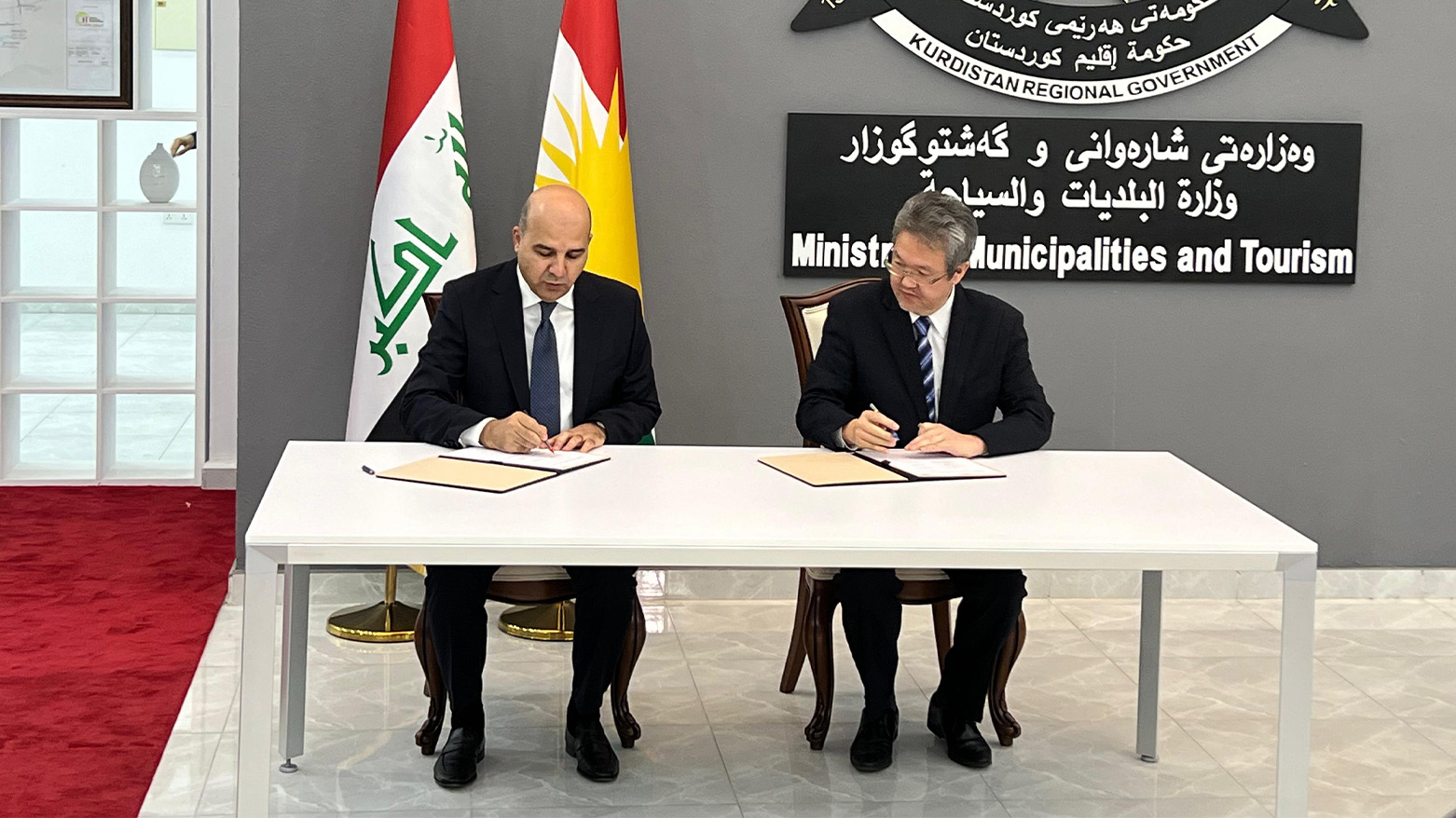KRG Launches $195 Million Phase of Erbil Sewage Management Project with Japanese Itochu
From River Purification to Farmland Irrigation, Project Signals Long-Term Sustainability Goals

ERBIL (Kurdistan24) — Kurdistan Regional Government (KRG) Minister of Municipalities and Tourism Sasan Aouni on Tuesday announced the signing of an agreement with Japanese company Itochu to implement the first phase of the Erbil sewage management project, valued at approximately $195 million, with all eight phases planned to be completed in three years.
Speaking at the official ceremony, Aouni emphasized the project’s importance in protecting public health and safety, not only in the Kurdistan Region but also in Iraqi cities along the Greater Zab River and the Tigris River, where untreated sewage and drainage problems have posed significant health and environmental risks.
“This project will provide significant benefits, including soil preservation, groundwater management, agricultural protection, river water purification, fish farming, and overall river and sewage cleanup,” Aouni said. “Additionally, treated wastewater will be reused for irrigation and agricultural development.”
The minister noted that Erbil’s sewage discharge volume reaches 318,000 cubic meters per day, while this project's first phase will treat 52,000 cubic meters per day, leaving 266,000 cubic meters still to be managed.
He stressed the ongoing need for comprehensive sewage management to prevent risks to public health, soil, and water resources in Erbil and across Iraq.
Aouni added that the KRG Council of Ministers had been informed that Prime Minister Masrour Barzani approved the continuation of the project’s seven remaining phases to be executed by local contractors and with international quality standards.
Upon completion, the treated sewage from across Erbil will be safely diverted to the Erbil sewage management reservoir in the village of Arab Kand, ensuring greater protection for the city and its residents.
By combining international expertise with local execution, the initiative demonstrates the KRG’s commitment to modern infrastructure and long-term environmental management, ensuring a cleaner and safer future for the region.
From Tokyo to Erbil: Itochu’s Role in Sustainable Sewage Solutions
Itochu Corporation, a prominent Japanese general trading company, is renowned for its extensive involvement in infrastructure and environmental projects worldwide. Established in 1858 and headquartered in Tokyo, Itochu ranks among Japan's largest sogo shosha (general trading companies), with a global presence and a diverse portfolio.
In the field of water and sewage infrastructure, Itochu has built strong expertise through its work in water supply, sewerage concessions, and seawater desalination projects.
The company has also managed large-scale energy-from-waste projects, including one of the world’s largest facilities in Dubai, which contributes to improved sewage and waste management. Committed to sustainability, Itochu continues to advance global sewage treatment systems while supporting broader environmental goals.
By partnering with Itochu, the Kurdistan Region is not only addressing urgent sewage and environmental challenges but also aligning itself with international standards of sustainable infrastructure.
This collaboration reflects the KRG’s broader vision of modernizing essential services, attracting global expertise, and building resilient systems that will support the region’s economic growth, public health, and long-term environmental security.